Our Research Teams
List of Co-Is and collaborators
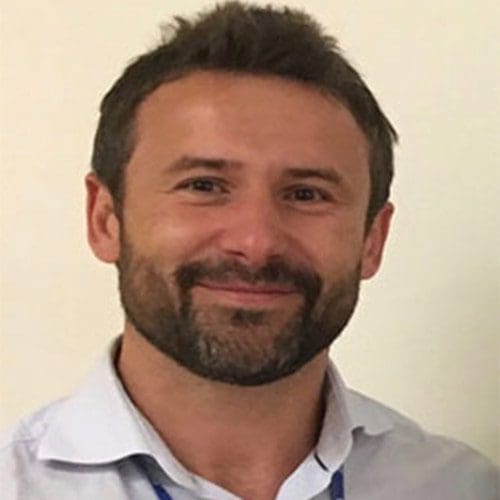
Professor Kevin Blyth
PREDICT-Meso Network PI, Co-Lead WP1, Co-Lead WP5.1
Professor of Respiratory Medicine
University of Glasgow
Kevin.Blyth@glasgow.ac.uk
Full Bio
Kevin Blyth is Professor of Respiratory Medicine at University of Glasgow, and Honorary Consultant in Respiratory Medicine at NHS Greater Glasgow and Clyde (NHSGGC). Following completion of Internal and Respiratory Medicine training and the award of an MD in Magnetic Resonance Imaging, he was appointed as a Consultant in 2009. He splits his time between the CRUK Beatson Institute/University of Glasgow and the Queen Elizabeth University Hospital, where he leads the Glasgow Pleural Disease Unit. He founded and is Director of the Macmillan Scottish Mesothelioma Network, which coordinates clinical care and access to clinical trials for Mesothelioma patients in Scotland. He is an NHS Scotland Research (NRS) Senior Research Fellow and leads a translational research program focused on pleural disease and thoracic malignancy, and has a particular interest in Mesothelioma. He is Principal Investigator of the CRUK PREDICT-Meso International Accelerator Network, and Meso-ORIGINS study site PI for the Queen Elizabeth University Hospital, NHS GGC.

Professor Robert Rintoul
Co-Investigator & Co-Lead WP1
University Reader in Thoracic Oncology
University of Cambridge
Robert.rintoul@nhs.net
Full Bio
Dr Rintoul is University Reader in Thoracic Oncology in the Department of Oncology, University of Cambridge and Honorary Consultant Respiratory Physician, Royal Papworth Hospital. He trained in respiratory medicine in London and Edinburgh receiving his doctorate from the University of Edinburgh for work investigating mechanisms underlying resistance to chemotherapy in small cell lung cancer. He was appointed consultant in respiratory medicine specialising in thoracic oncology at Royal Papworth Hospital in 2005 before taking up his current post in 2017. Dr Rintoul is lead clinician for cancer at Royal Papworth Hospital and Director of the Papworth Trials Unit Collaboration. He is co-lead of the CRUK Cambridge Centre Aerodigestive Programme and co-ordinates thoracic oncology research across Cambridge. From January 2021 he has been appointed chair of the clinical advisory group of the UK Lung Cancer Coalition.
Dr Rintoul’s research is focused around clinical trials, translational research and tissue banking in malignant mesothelioma and the early detection of lung cancer. He is Chief Investigator for several clinical translational studies examining biomarkers in lung cancer. In 2012 he founded MesobanK, the UK national bioresource for malignant mesothelioma (www.mesobank.com). His work is funded by the Cambridge Biomedical Research Centre, Cancer Research UK, National Institute for Health Research and the British Lung Foundation. He is Co-Lead for PREDICT-Meso WP1 and Meso-ORIGINS study site PI for Royal Papworth Hospital.
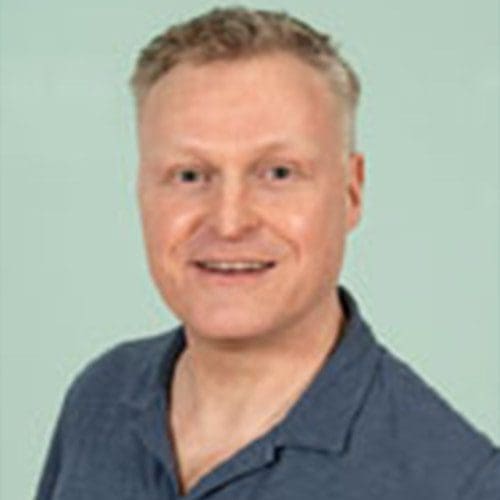
Professor Crispin Miller
Co-Investigator WP1
Professor of Computational Biology
Beatson Institute for Cancer Research
Crispin.Miller@glasgow.ac.uk
Full Bio
The Miller group applies computational approaches including machine learning to the study of altered expression patterns in tumours. The group has a particular focus on the processes involved in the post-transcriptional regulation of protein expression.
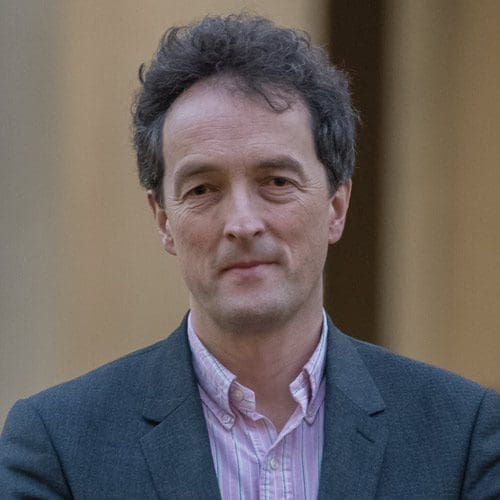
Professor Robert Jones
Co-Investigator WP1
Professor of Clinical Cancer Research
CRUK Glasgow Clinical Trials Unit
Full Bio
Cancer Clinical Trials Unit Director. The CRUK Glasgow CTU runs a comprehensive service to design, implement, run and analyse cancer clinical trials
Clinical Trial Unit Glasgow
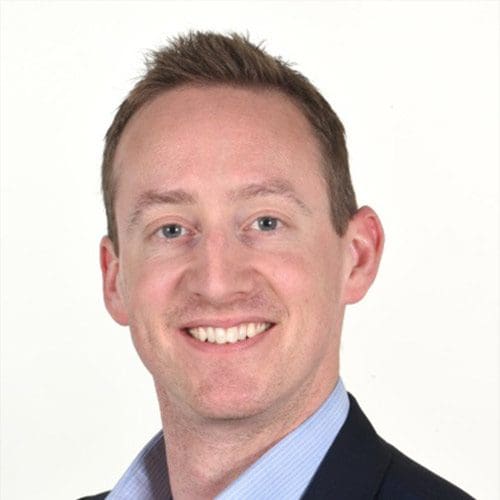
Dr Matthew Evison
Co-Investigator WP1
Consultant Chest Physician
Manchester University NHS Foundation Trust
matthew.evison@mft.nhs.uk
Full Bio
PREDICT-Meso Co-Investigator WP1
Consultant Chest Physician at Wythenshawe Hospital, Manchester University NHS Foundation Trust.
Clinical lead for the CURE programme and Tobacco Addiction and a core member of the Specialist Lung Cancer and Pleural Teams. This role includes delivery of the CURE, RAPID and Lung Health Check programmes at Wythenshawe Hospital.
Director of the Lung Pathway Board and clinical lead for the CURE project for Greater Manchester.
Member of the British Thoracic Society Specialist Advisory Groups for Tobacco and Pleural and a member of the British Thoracic Oncology Group Steering Committee.
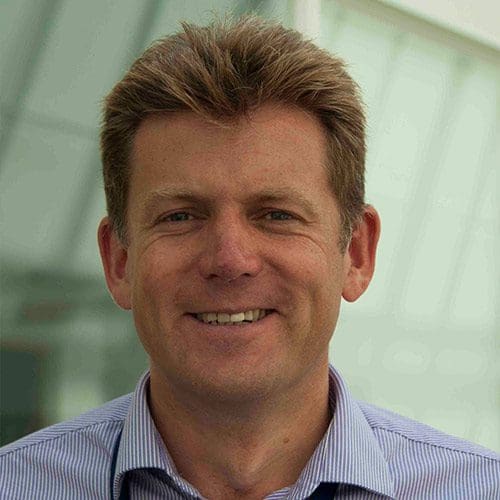
Professor Nick Maskell
Co-Investigator WP1
Professor of Respiratory Medicine
North Bristol NHS Trust
nick.maskell@bristol.ac.uk
Full Bio
Research interests: Randomised controlled clinical trials; Pleural disease & interventions; Newer treatments including immunotherapy

Ms Clare Orange
Co-Investigator WP1 & RTB Manager
NHSGGC Biorepository Manager
NHS Greater Glasgow and Clyde (NHS GGC)
Clare.Orange@ggc.scot.nhs.uk
Full Bio
As Biorepository Manager for NRS GG&C since 2019 I have a keen interest in supporting the application of human tissue in research and teaching. The Biorepository has delegated REC authority to provide surplus to diagnosis tissue to support academic, clinical and commercial research and also supports CTIMP and ATMP trials.
My interests and expertise also includes TMA construction, Digital Pathology and the development of AI in digital diagnostics.

Dr Alexandrea MacPherson
PREDICT-Meso Project Manager
University of Glasgow
Alexandrea.MacPherson@glasgow.ac.uk
Full Bio
Dr MacPherson graduated with a PhD in Immunology in 2012 before moving on to Research Manager and Project Co-ordinator roles at NHS GGC, University of Glasgow, and Oregon Health and Science University. Dr MacPherson is responsible for overall project management of the PREDICT-Meso Network, co-ordination of the work packages and ensuring the PREDICT-Meso aims are met.
Dr MacPherson is the lead contact for the Network and the clinical study Meso-ORIGINS, which she co-ordinates.
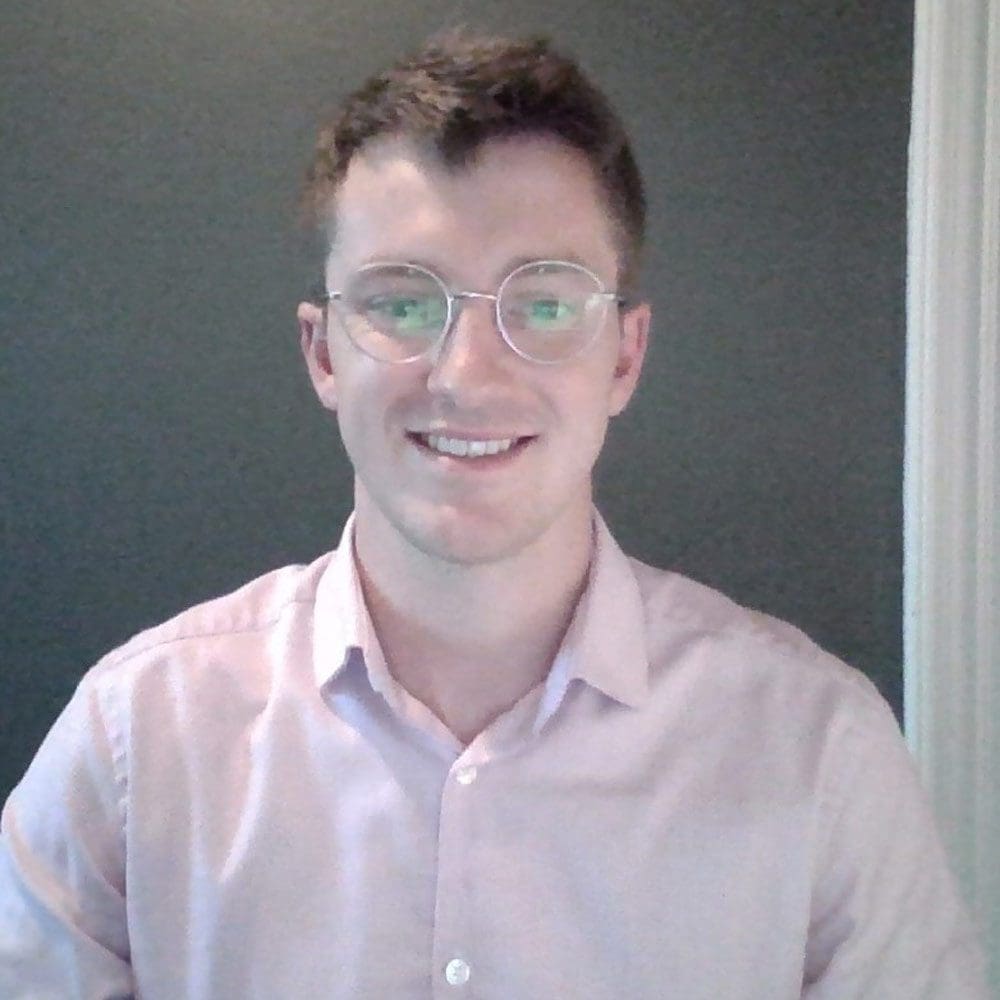
Dr Mark Neilly
Clinical Research Fellow
University of Glasgow
mark.neilly@ggc.scot.nhs.uk
Full Bio
Mark Neilly graduated with an MBChB from the University of Dundee in 2016 and completed Internal Medicine Training in the West of Scotland in 2022.
He is currently undertaking a PhD in Cancer Sciences with the University of Glasgow.
His role is centred around the clinical elements of PREDICT-Meso, namely the coordination of recruitment to Meso-ORIGINS.

Professor John Le Quesne
Collaborator WP1&2
Professor in Molecular Pathology
Beatson Institute for Cancer Research
John.LeQuesne@glasgow.ac.uk
Full Bio
The Le Quesne group use quantitative deep phenotyping methods to ask questions about tumour biology in intact tissues from humans and from animal models. We have particular interests in the dysregulation of mRNA translation, in the complex tumour microenvironment, in morphological biomarkers, and in the development of highly multiplexed quantitative methods using machine learning methods. Mesothelioma is an area of particular interest.
www.beatson.gla.ac.uk/The-Beatson-Institute-Research-Groups/john-lequesne
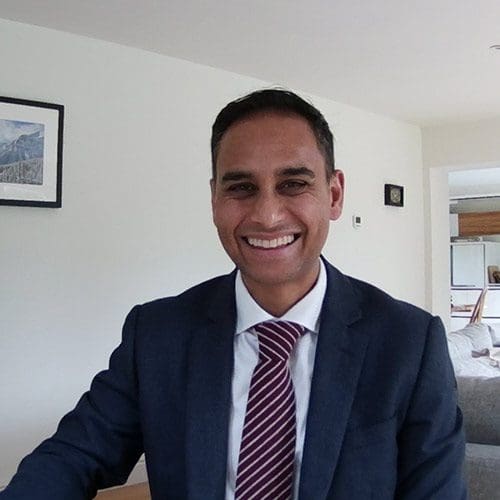
Professor Najib Rahman
Collaborator WP1
Professor of Respiratory Medicine and Director
Oxford Respiratory Trials Unit
najib.rahman@ouh.nhs.uk
Full Bio
Providing expertise in clinical trials, translational mesothelioma work including cell lines and drug sensitivity. Meso-ORIGINS study site PI for Manchester University NHS Foundation Trust.
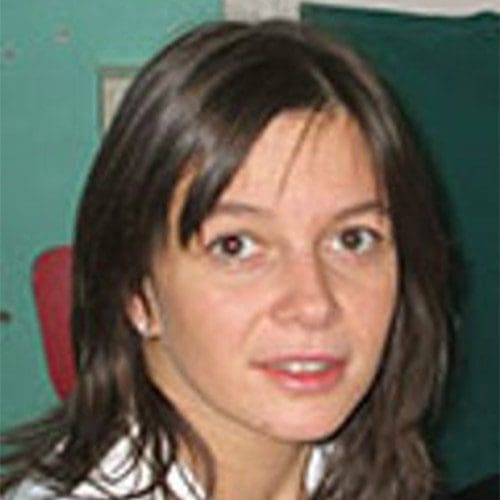
Professor Luisella Righi
Collaborator WP1
Associate Professor of Pathology
University of Turin
Full Bio
As a pathologist I’m daily dedicated to diagnostic histopathology and cytology of thoracic oncology together with diagnostic immunohistochemistry and molecular biology techniques applied to histo- and cytopathology. As a researcher my fields of interest are mainly focused on translational studies of histology, immunohistochemistry and molecular pathology applied to thoracic tumors: in particular, I studied the application of immunocytochemistry and molecular biology to identify new biomarkers of neoplasia and/or characterise the phenotypic and molecular profile of various human thoracic tumors, such as non-small cell lung cancer, malignant pleural mesothelioma and neuroendocrine tumors, establishing correlation with clinico-pathological parameters, response to therapy and prognosis.
Prof Righi’s team will provide retrospective MPM pairs and provide expertise in diagnostic histo- and cyto-pathology on MPM samples as part of WP1 .
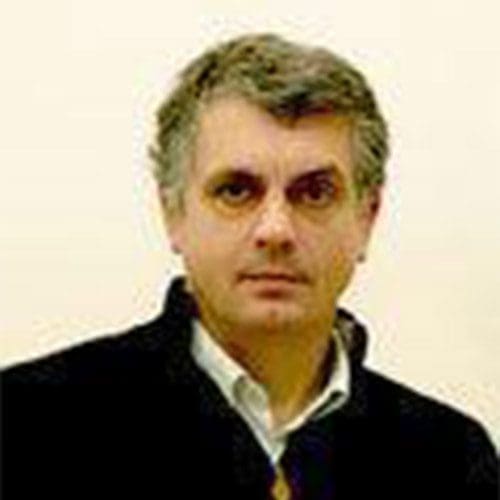
Professor Mauro Papotti
Collaborator WP1
Head of the Pathology Unit
University of Turin at Health and Science City Hospital
Full Bio
Prof Papotti’s team will provide retrospective MPM pairs and provide expertise in diagnostic histo- and cyto-pathology on MPM samples as part of WP1.
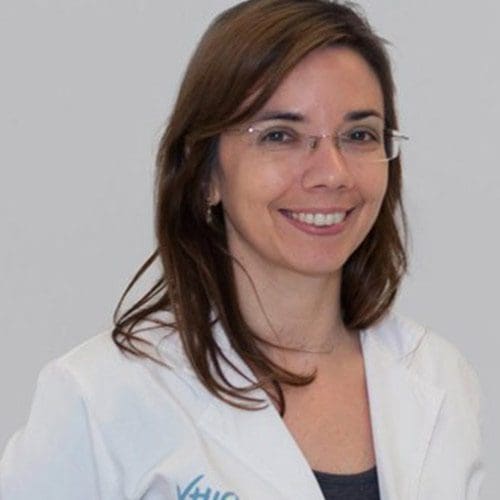
Dr Susana Cedres
Co-Investigator – Lead WP2
Medical oncologist
Vall d’Hebron Institute of Oncology (VHIO)
scedres@vhio.net
Full Bio
Dr. Cedrés graduated in Medical Oncology in 2005 by Hospital Universitario de Canarias. Since 2005 she has been working at the thoracic tumors unit at Vall d´Hebron University hospital with attention to investigation in clinical trials in lung cancer and mesothelioma patients.
In 2014 she obtained her PhD by Universidad Autonoma de Barcelona working in expression of PD-L1 in malignant pleural mesothelioma patients. She has publications about prognostic and predictive markers of response in thoracic tumors. Currently she is specialized in the investigation of biomarkers of response to therapies in thoracic tumors and she participates in the development of new drugs for these patients.
Visit Profile
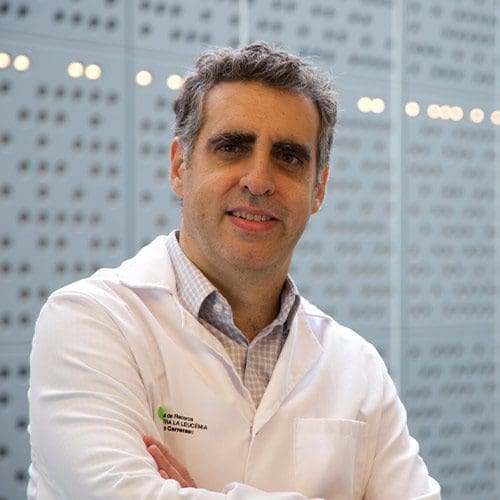
Dr Manel Esteller
Co-Investigator WP2
Director- Josep Carreras Leukaemia Research Institute (IJC)
mesteller@carrerasresearch.org
Full Bio
The Cancer Epigenetics group continues the wide-ranging work on epigenetics that Manel Esteller, the group leader, has carried out during his career until now. Current research is devoted to the establishment of the epigenome and epitranscriptome maps for normal and transformed cells, the study of the interactions between epigenetic modifications and non-coding RNAs, and the development of new epigenetic drugs for cancer therapy.
The Cancer Epigenetics Group’s main research interests are:
– Epigenetic disruption of mRNA transcription, particularly in DNA methylation and histone modification patterns, and its contribution to the initiation and progression of human tumours.
– Translation of the use of epigenetic knowledge gained from research into biomarkers to predict clinical outcome and to assay new drugs to reverse the distorted epigenetic landscape.
– Development and study of new epigenetic drugs that target DNA methylation and histone modification writers, readers and erasers and could have an anti-cancer effect.
– Study of monogenic disorders affecting epigenetic genes, particularly in Rett syndrome.
Study of epigenomic profiles of common diseases such as cardiovascular alterations and Alzheimer and other neurodegenerative diseases.
– Establishment of new epigenomic platforms to elaborate comprehensive DNA methylome maps.
In addition, the study of epitranscriptomics is a focus of intense research in the group.
Visit profile

Professor Seth Coffelt
Co-Investigator WP2.4
Senior Research Fellow
University of Glasgow
Seth.Coffelt@glasgow.ac.uk
Full Bio
The Coffelt lab is a cancer immunology lab focused on immune escape and immunosuppression in mouse models of cancer. They are particularly interested in gamma delta-cells, a T-cell receptor-expressing immune cell population with innate-like characteristics.

Professor Andrew Biankin
Co-Investigator WP2
Director of Translational Research Centre
University of Glasgow
Andrew.Biankin@glasgow.ac.uk
Full Bio
Professor Biankin is a surgeon-scientist and Director of the Wolfson Wohl Cancer Research Centre at the University of Glasgow, where he established the Glasgow Precision Oncology Laboratory in 2016. Professor Biankin is also Chair of the UK-wide Precision-Panc programme of clinical trials for patients with pancreatic cancer. Professor Biankin is the Executive Director of the International Cancer Genome Consortium, Accelerating Research in Genomic Oncology (ICGC ARGO) project.
www.gpol.org

Professor Daniel Murphy
Co-Investigator- Lead WP3.2, Co-Lead WP4
Professor of Lung Cancer & Mesothelioma
University of Glasgow
Daniel.Murphy@glasgow.ac.uk
Full Bio
Research interests: Genetically engineered mouse models of mesothelioma and pre-malignant disease; tumour: inflammation/immune cross-talk; oxidative stress; Hippo pathway

Professor Marion MacFarlane
Co-Investigator- Co-Lead WP3.1, Co-Lead WP4
Deputy Director of the MRC Toxicology Unit
University of Cambridge
mm2312@mrc-tox.cam.ac.uk
Full Bio
Prof. MacFarlane co-leads the ‘Mechanisms of Fibre Toxicity’ Programme at the MRC Toxicology Unit. The MRC team have characterised asbestos-induced mesothelioma development in vivo via longitudinal analysis of candidate tumour suppressor gene status throughout disease development in the pleura (Chernova et al, Curr Biol 2017). In addition, the team have successfully established low-passage patient-derived mesothelioma cell lines (PDCLs) from surgical resections, and have shown these recapitulate human disease (Chernova et al, Cell Death Differ 2016). The team will contribute to PREDICT-Meso by 1) establishing well-characterised PDCLs from pleural effusions, obtained at both pre-MPM and MPM stage (WP3), 2) in collaboration with the Bianchi team (Milan), establish 3D organotypic models for initial in vitro validation of drug screen candidates/target-drug validation (WP3&4), and 3) with the Murphy Lab (Glasgow), help establish and subsequently employ immunocompetent GEM models of asbestos-induced pleural mesothelioma for target-drug validation in vivo (WP4).
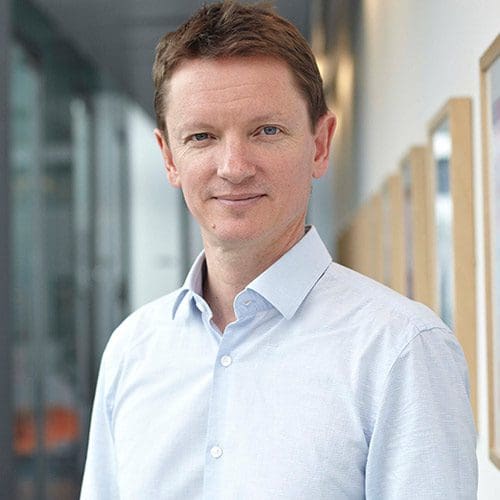
Professor Sam Janes
Lead WP3.3 and Co-Investigator WP4
Professor of Respiratory Medicine
University College London (UCL)
s.janes@ucl.ac.uk
Full Bio
Sam won an MRC Training Fellowship to perform a PhD and then a post-doctoral period working in the CRUK Lincoln’s Inn Fields Institute with Fiona Watt working on stem cell biology. He then moved as an MRC Clinician Scientist to UCL leading a group interested in the role of stem cells in lung cancer pathogenesis and treatment of lung disease using cell therapies. He was awarded a Wellcome Trust Senior Clinical Fellowship in October 2010 to work on novel cell therapies for lung cancers resulting in a DPFS first-in-man award and in 2015 won his Wellcome Senior Fellowship renewal to study the genetic and cellular changes lung cancer pathogenesis. He is the lead of four academic randomised clinical trials and most notably recently launched the SUMMIT study, a 25,000 participant London based study examining CT and blood screening for lung and other cancers.
He works as a respiratory consultant at UCLH with a particular interest in lung cancer, mesothelioma, interventional and diagnostic bronchoscopy and early lung cancer detection. He is Head of Respiratory Research Department at UCL, Vice-Chair of the National ‘Clinical Expert Group’ on Lung Cancer.

Professor Marco Bianchi
Co-Lead WP3.1, Co-Investigator WP4
Università Vita-Salute San Raffaele (UniSR), Milan
bianchi.marco@hsr.it
Full Bio
My group participated in the identification of HMGB1 as an initial pathogenetic trigger in the
inflammation that accompanies the development of mesothelioma and later as a pro-tumoral molecule secreted by tumour cells and macrophages in mesothelioma.
More recently, we have been developing molecules to target, mouse models of mesothelioma and organoids from human mesothelioma fragments to assess the efficacy of antitumor drugs.
We have recently developed technology to obtain organoids from human and mouse non-tumoral pleura and mesothelioma surgical fragments and will disseminate to other coinvestigators in the UK our expertise in generating and exploiting these novel patient-derived models (as part of WP3). As part of WP4, we also plan to test BoxA, our most interesting anti-mesothelioma drug lead, as an exemplar drug on human organoids and on genetically modified mesothelioma models (GEMMs) developed by other team members

Professor Anne Willis
Co-Investigator WP4
Director of the MRC Toxicology Unit
University of Cambridge
aew80@mrc-tox.cam.ac.uk
Full Bio
Professor Anne Willis OBE is Director of the MRC Toxicology Unit and with research programmes on Post-transcriptional control of gene expression following toxic injury and Fibre Toxicity Programme (a cross Unit programme with Marion MacFarlane), which complements PREDICT-Meso proposed work, with a focus on engineered carbon nanotubes. Prof Willis is a global leader in in vitro MPM models, and the biology underlying MPM evolution alongside Prof Marion MacFarlane who also has extensive expertise in in vivo models. Their pivotal observation that genomic events pre-date MPM evolution in mice provides the compelling pre-clinical rationale for the PREDICT-Meso programme. Prof Willis will be involved in the generation and profiling of patient derived cell lines and the validation of primary organoid models.
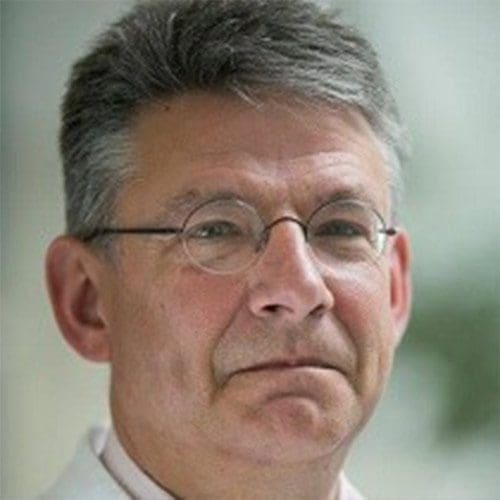
Professor Jan van Meerbeeck
Co-Investigator WP5.1
Professor of Thoracic Oncology
University of Antwerp
Jan.VanMeerbeeck@uza.be
Full Bio
Professor in Pulmonology at Antwerp University and chair of the Pulmonology Department of its academic hospital (UZA). His translational scientific interests include the molecular diagnosis of lung cancer, the management of mesothelioma and the evaluation of volatile biomarkers of asbestos exposure. Together with Kevin Lamote, he is the founder of the breathomics lab within the Laboratory of experimental medicine and pediatrics (LEMP) at University of Antwerp. Member of European Reference Network for rare/ low prelavent diseases (ERN-Lung); Senior consultant thoracic oncology; Honorary professor of pulmonology
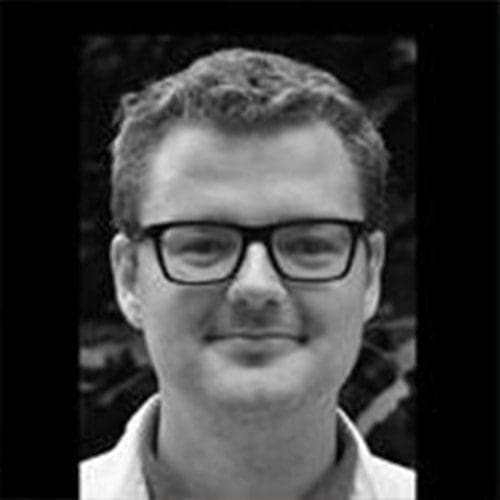
Dr Kevin Lamote
Collaborator WP5.1, lead for Meso-ORIGINS study exhaled breath analysis
Postdoc researcher
University of Antwerp
Kevin.Lamote@uantwerpen.be
Full Bio
Kevin Lamote graduated as Master in Biomedical Sciences in 2011 at Ghent University (Belgium). At the same university, he obtained his PhD in 2017 where he developed and validated a breath test to detect malignant pleural mesothelioma and lung cancer in at risk asbestos-exposed individuals based upon the analysis of volatiles in breath by using mass spectrometry, sensor and spectroscopic techniques. Since then, he works as postdoc at the University of Antwerp where he is currently assessing the clinical utility of the breath test and extending his research to studying the volatiles in the gut and lung microbiome, and their use as diagnostic and monitoring biomarkers in non-malignant diseases in vivo as well as in vitro. He is a member of the European Respiratory Society and the international Association for breath research. He is also associate editor for Microbiota in Health and Disease and a member of the Basic Science Working Group of the Belgian Respiratory Society. He is (co-)promotor of 6 ongoing PhD’s all studying different aspects of breath analysis.”

Dr Anna Bibby
Co-Investigator & Co-Lead WP5.2
Respiratory Consultant & NIHR Research Fellow
North Bristol NHS Trust
anna.bibby@nbt.nhs.uk
Full Bio
Dr Anna Bibby was appointed in 2018, having completed her speciality training in respiratory medicine and general internal medicine in the Severn Deanery in 2015. As well as a brief period working for Medicins sans Frontieres (MSF) in Mozambique, she spent three years working towards a PhD in mesothelioma at the University of Bristol. She maintains an active interest in clinical research, and holds a personal NIHR research fellowship with the University that allows her to run several mesothelioma trails alongside her clinical commitments. She is co-lead for Lung Cancer Services at North Bristol NHS Trust, and sits on the steering committee for the British Lung Foundation Mesothelioma Research Network. She ran the European Respiratory Society Taskforce on Malignant Pleural Effusions and is a member of the 2018 British Thoracic Society Pleural Disease Guideline group. She sits on the faculty for the British Thoracic Society thoracic ultrasound training course and the European Respiratory Society ultrasound and pleural procedure courses.. Research interests: Clinical trials; Observational data; Patients who decline/ are not suitable for systemic therapy; Immunotherapy; Pleural interventions; Pragmatic trials/ novel methodologies
Meso-ORIGINS study site PI for North Bristol NHS Trust
CI for ASSESS-Meso study which supports PREDICT-Meso WP5 activities.
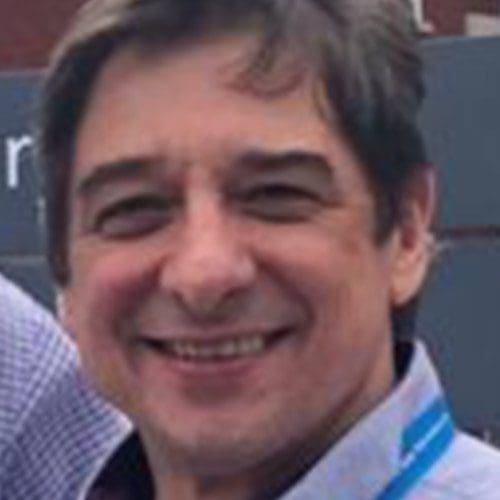
Dr Klaus Irion
Co-Investigator WP5.1
Consultant Chest Radiologist
Manchester University NHS Foundation Trust
Klaus.Irion@mft.nhs.uk
Full Bio
Research Interests: Lung Cancer Imaging, COPD Diffuse Interstitial Lung Diseases, Imaging Quantification, Medical Education
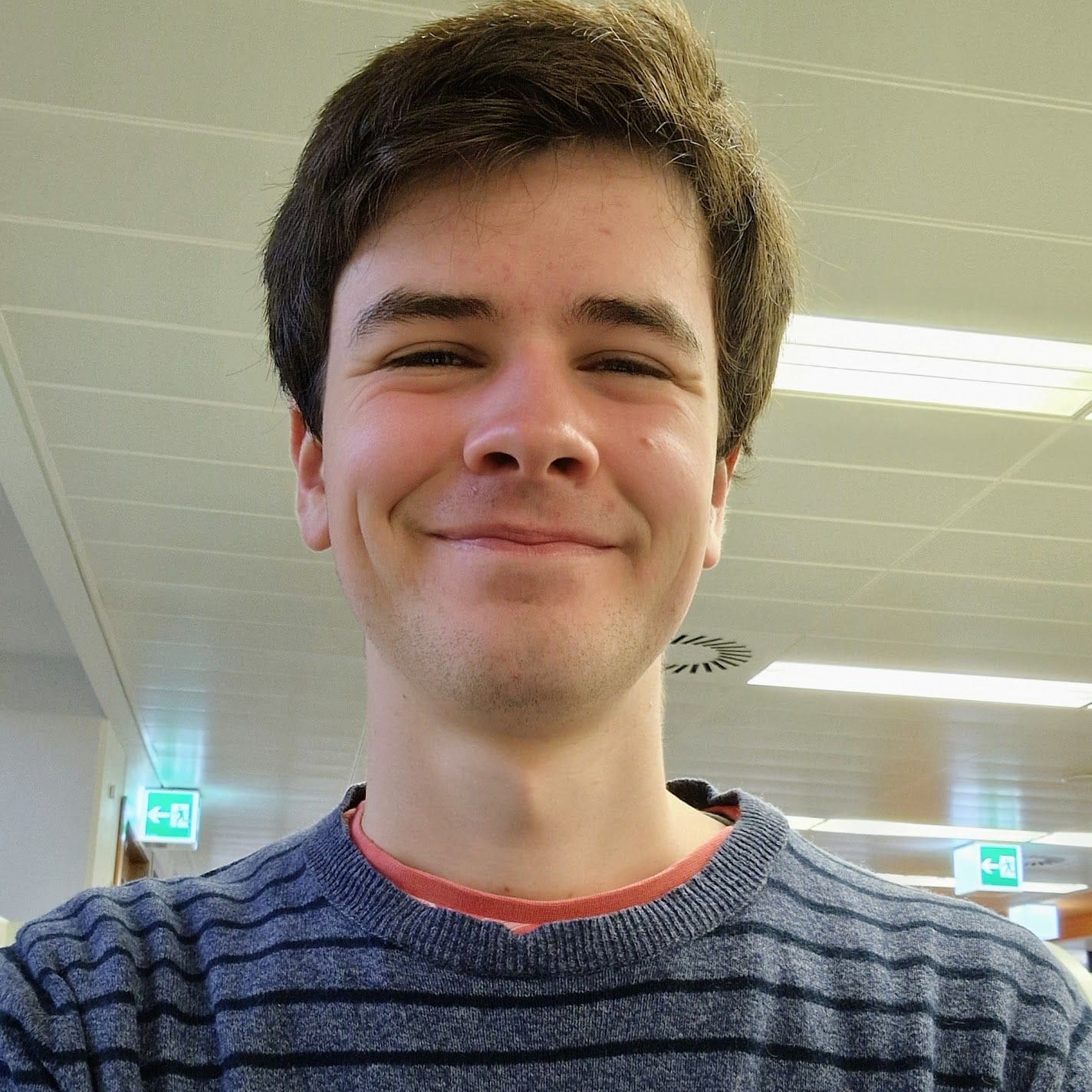
Mr Joshua Roche
Predict-MESO PhD Student
University of Glasgow
j.roche.1@research.gla.ac.uk
Full Bio

Professor Bruno Hochhegger
Collaborator WP5
Professor of Radiology
Pontificia Universidade Católica do RS (PUCRS)
brunohochhegger@gmail.com
Full Bio
Adjunct Professor of Diagnostic Imaging at PUCRS and Medical Coordinator of the HSL / PUCRS Image Center and the Molecular Image Center at InsCer-PUCRS. His main line of research is Functional and Molecular Image of the Body, with special interest in thoracic pathologies is Coordinator of the EXPER Research Group – Diagnosis and Research of Excellence.
Research areas of interest: Lung cancer; Malignancy; Magnetic resonance

Professor Hans-Ulrich Kauczor
Collaborator WP5.2
Full Professor and Chairman of Radiology
University of Heidelberg
Full Bio
Full Professor and Chairman of Radiology (University of Heidelberg), Medical Director of Diagnostic and Interventional Radiology at the University Hospital Heidelberg, Acting head of the Department of Translational Pneumology. Research Interests: Imaging, CT, MRI; Functional imaging; Quantitative imaging biomarkers; Staging, response assessment, prognostication
